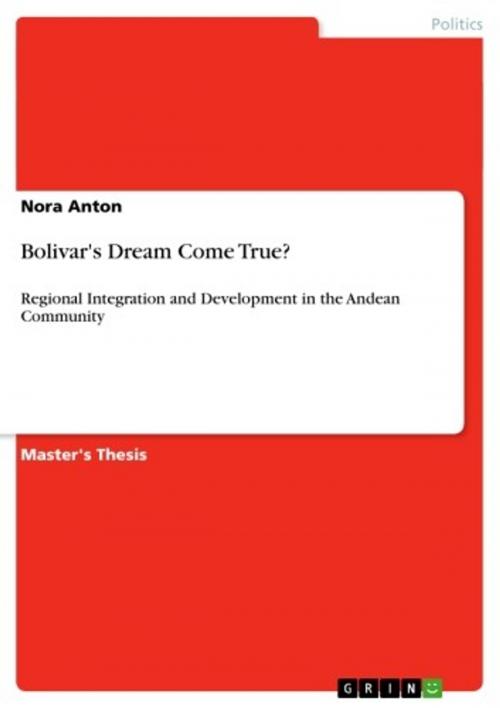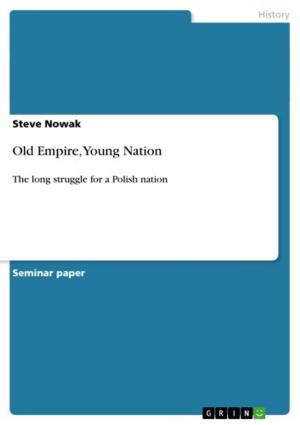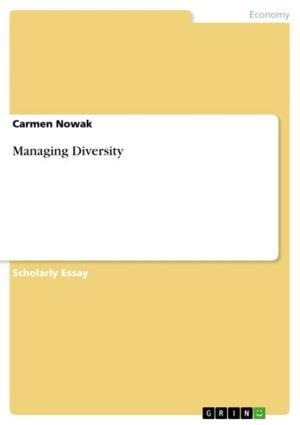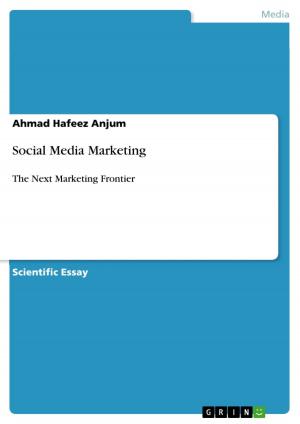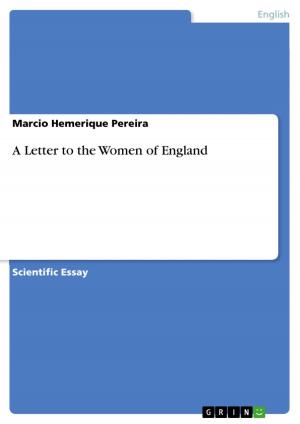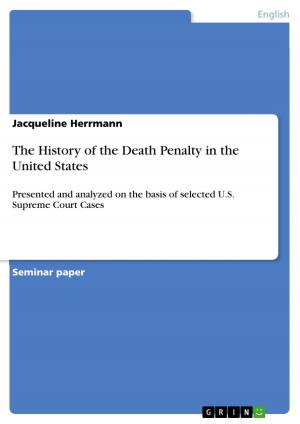Bolivar's Dream Come True?
Regional Integration and Development in the Andean Community
Nonfiction, Social & Cultural Studies, Political Science, International, International Relations| Author: | Nora Anton | ISBN: | 9783638897457 |
| Publisher: | GRIN Publishing | Publication: | January 21, 2008 |
| Imprint: | GRIN Publishing | Language: | English |
| Author: | Nora Anton |
| ISBN: | 9783638897457 |
| Publisher: | GRIN Publishing |
| Publication: | January 21, 2008 |
| Imprint: | GRIN Publishing |
| Language: | English |
Master's Thesis from the year 2006 in the subject Politics - International Politics - Region: Middle- and South America, grade: 1,3, University of Münster (Politikwissenschaft), 84 entries in the bibliography, language: English, abstract: Shortly after the treaties founding the European Coal and Steel Community (ECSC), European Atomic Energy Community (EAC) and European Community (EC) were signed, there were efforts in other regions of the world as well to follow this example, notably in Latin America, where, among other Associations, the Andean Pact (now Andean Community or Comunidad Andina de Naciones, CAN) was established. In contrast to that on European integration, however, most political and academic discourse on the Andean Community agrees upon the fact that this integration process has, up to now, not been very 'successful', and quite often it is called a complete failure. This thesis wants to contribute to the search of possible reasons for this.In order to explain the lack of 'success' of Andean integration - especially in the period since the late 1980s - this thesis focuses on an element which, in most integration theories, is considered the most important prerequisite for regional integration: interdependence, and thus a demand for integration on the part of the region's citizens. It is argued that in principle, integration can create or at least reinforce its own demand, but that this has only happened in the Andean case to a relatively small extent and limited to few sectors of the highly unequal societies in Bolivia, Colombia, Ecuador, Peru and Venezuela.
Master's Thesis from the year 2006 in the subject Politics - International Politics - Region: Middle- and South America, grade: 1,3, University of Münster (Politikwissenschaft), 84 entries in the bibliography, language: English, abstract: Shortly after the treaties founding the European Coal and Steel Community (ECSC), European Atomic Energy Community (EAC) and European Community (EC) were signed, there were efforts in other regions of the world as well to follow this example, notably in Latin America, where, among other Associations, the Andean Pact (now Andean Community or Comunidad Andina de Naciones, CAN) was established. In contrast to that on European integration, however, most political and academic discourse on the Andean Community agrees upon the fact that this integration process has, up to now, not been very 'successful', and quite often it is called a complete failure. This thesis wants to contribute to the search of possible reasons for this.In order to explain the lack of 'success' of Andean integration - especially in the period since the late 1980s - this thesis focuses on an element which, in most integration theories, is considered the most important prerequisite for regional integration: interdependence, and thus a demand for integration on the part of the region's citizens. It is argued that in principle, integration can create or at least reinforce its own demand, but that this has only happened in the Andean case to a relatively small extent and limited to few sectors of the highly unequal societies in Bolivia, Colombia, Ecuador, Peru and Venezuela.
